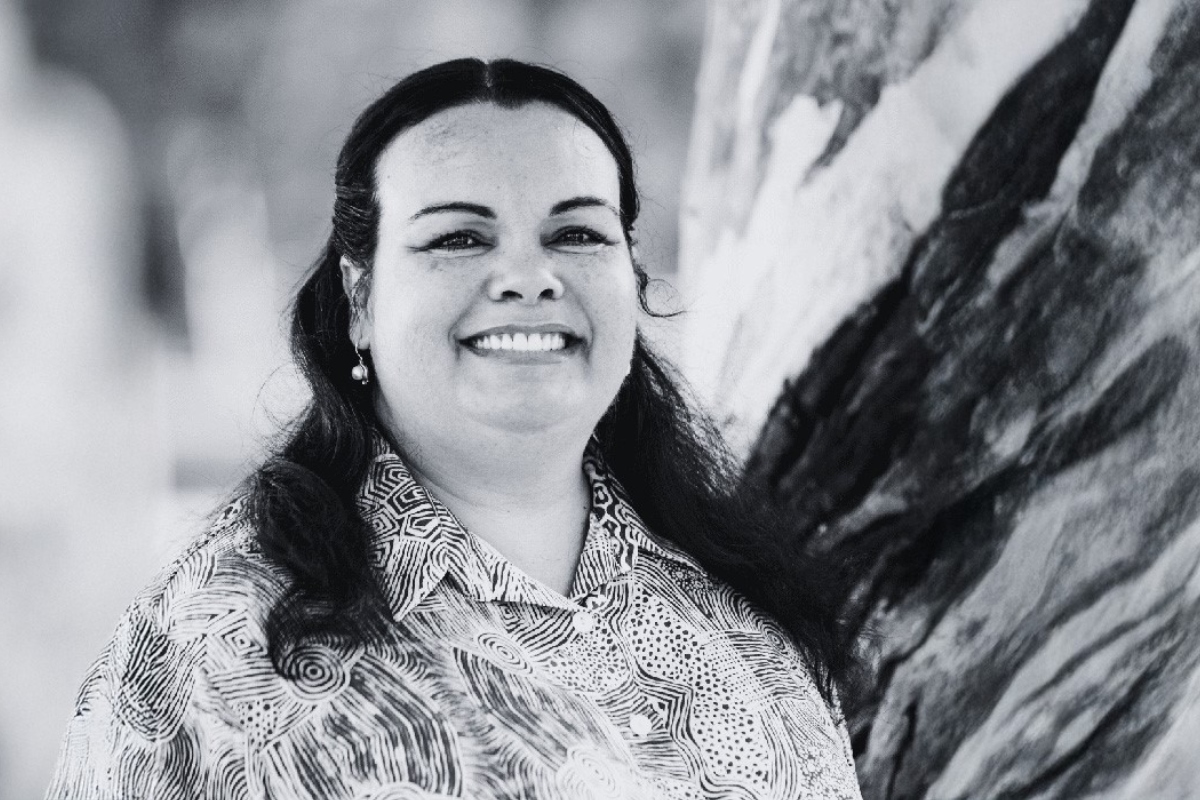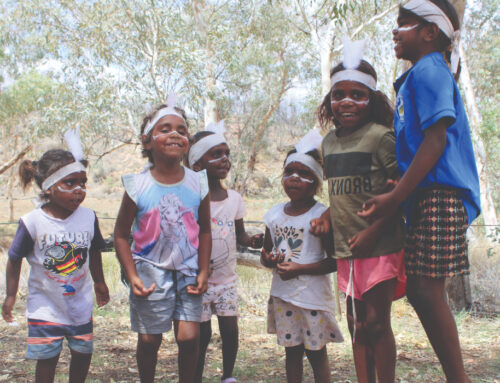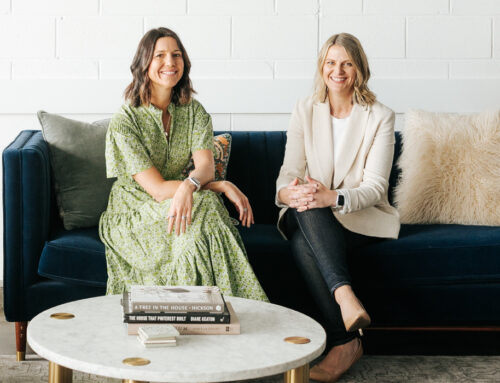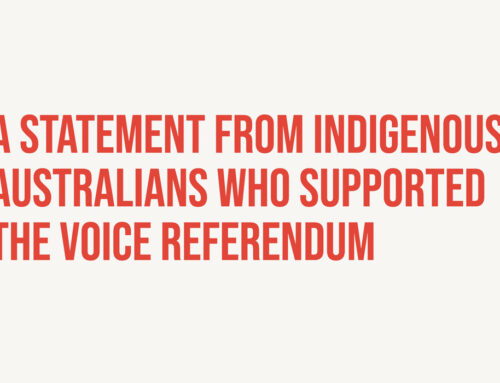As the music industry gears up for Music in the House – the annual music fest that celebrates and raises crucial funds for industry not-for-profit Support Act – we introduce the newest member of the Support Act team, First Nations program manager Catherine Satour
For as long as she can remember, Catherine Satour’s life has been immersed in music. Born in Alice Springs and raised in a small community close by, the Pertame, Arrernte and Mirning woman spent her young years surrounded by music. From watching her musician father, Bunna Lawrie, and his band Colored Stone playing post-footy match gigs at the Alice Springs rec hall, to performing in Black Night as a 16-year-old singer-songwriter at the Adelaide Festival, as well as developing a program mentoring, promoting and educating female Indigenous musicians, music has always been a mainstay.
“Music has been so instrumental in my life, and I’ve always been fascinated by just how much people love it,” Catherine says.
Given her additional leadership roles in community and politics, it was a natural fit for Catherine to step into the national role of First Nations program manager for Support Act. A registered charity, Support Act provides crisis relief, mental health and wellbeing support to musicians, artist managers, crew and music workers across all genres of music, including and with a special focus on First Nations musicians and industry workers. The Tony Foundation has proudly backed Support Act since 2017, helping to establish its wellbeing helpline – recently expanded to support all creative industry workers – reflecting the Foundation’s commitment to enabling positive outcomes through music and supporting a vibrant culture in Australia.
“In the past five years, Support Act has helped more than 500 First Nations music and creative industries workers through crisis relief, mental health support and wellbeing programs, but there’s still so much more to do,” says Catherine, who began the full-time role in February. “I want to help create spaces where Aboriginal and Torres Strait Islander artists and crew are empowered within the industry.”
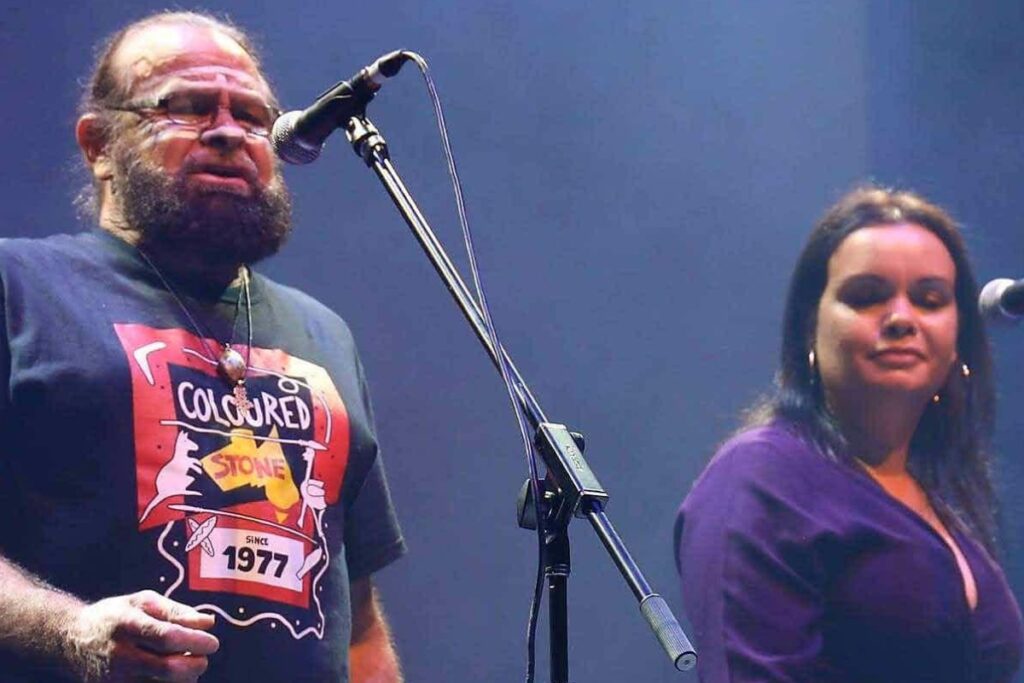
Catherine performing with her dad, Bunna Lawrie of the legendary Coloured Stone. (Image: Supplied).
Catherine has long displayed an impressive drive to educate herself and create opportunities, and was just a teenager when she asked to move to Adelaide to finish high school in the hope there would be more openings for an aspiring musician.
“The gigs at the local football club were awesome but there’s only so many times you can do them before you start to feel you’re not really growing anymore,” she says.
Completely untrained, Catherine learnt by watching and listening to those around her, picking up instruments, singing and composing her own music. Today, she describes her style as ‘soft rock and soul’.
She completed years 11 and 12 in Adelaide, spending as much time as she could at Carclew youth arts centre where she had the chance to showcase her talents as an artist. Following high school, she continued performing, juggling interstate gigs with day jobs before moving home in her early 20s to Alice Springs, where she was dismayed to find nothing had changed for Aboriginal women in music.
“There’s been this really successful music movement out of central Australia, but for me to come into the local arts organisations and say, ‘Hey I’d like to do a gig, just inquiring?’ and they’d reply, ‘OK, we’ll see if we can work out where you fit’, that didn’t sound like a pathway.”
So, she created her own. Desert Divas was set up in 2010, a program for Indigenous women in music seeking skills development and mentorship, building networks and a community of likeminded people in the Northern Territory. Desert Divas has also released various albums and today helps female Indigenous musicians with everything from creating catalogues to building their profile and gaining employment in associated roles such as stage management, sound and audio.
“It was such an exciting time – we started with five participants and every year it grew and now in 2025 we’re celebrating our 15th anniversary, which is a pretty amazing achievement for any music program. I’m so incredibly proud of it,” she says.
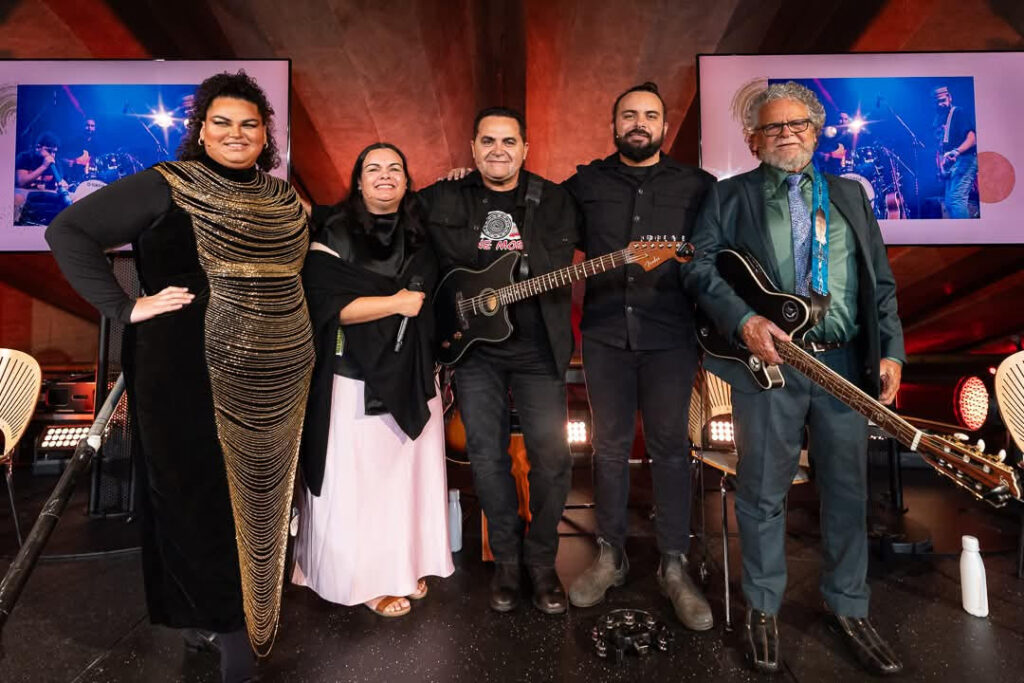
Generations & Dynasties (left to right): Yirgjhilya Lawrie, Catherine Satour, Jason Lee Scott, Jhindu Lawrie and Dad Lawrie in May 2025. (Image: Joseph Mayers)
Despite a busy professional and family life, Catherine still finds time to perform, alongside the Darwin Symphony Orchestra at the Partjima Festival in Alice Springs in April, and most recently, on the Sydney Opera House stage as part of Generations and Dynasties with other family members as part of Colored Stone, who is preparing to celebrate 50 years.
Along the way, Catherine has gained valuable experience outside the music industry, working in the Office of the Chief Minister and Cabinet in the Northern Territory; as an elected member of Alice Springs Town Council, and spending 10 years delivering primary health care services at the Central Australian Aboriginal Congress Aboriginal Corporation.
“Being active in politics came naturally because of the advocacy work that’s gone into opening doors for women to have opportunities, that led into other leadership roles and conversations around equity towards First Nations people,” says Catherine, who is also chair of Music NT, the Territory’s peak body for music.
She will be channelling this experience advocating for First Nations musicians and industry workers in her role with Support Act, in addition to overseeing and expanding the delivery and exposure of culturally-informed services from financial support to mental health, education and training programs, and of course the First Nations Support Line – a free, confidential call service providing advice and counselling from trained First Nations staff.
Catherine will continue to be based in Alice Springs, from where she is looking forward to visiting remote and regional Indigenous communities to broaden Support Act’s reach first-hand.
“Our First Nations communities are so naturally talented in music because we come from a long line of singers, dancers and artists and it’s quite natural for our communities to be in a contemporary space, sharing elements of their cultural background,” says Catherine. “Anything we can do to support artists to continue to do shows, record music, perform and be a part of educating audiences in their regions and across the country, that’s such a cool gig for me.”
